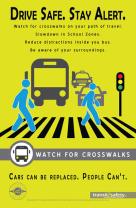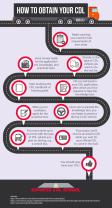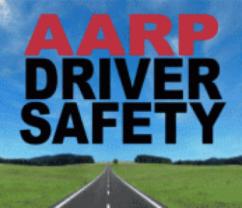What will I learn at a CDL driving school?
At a Commercial Driver's License (CDL) driving school, you can expect to undergo comprehensive training to prepare for obtaining a CDL and pursuing a career as a professional truck driver. The curriculum at CDL driving schools typically covers a range of topics and practical skills to ensure that you are well-prepared for the responsibilities of commercial driving. Here's what you can generally expect to learn at a CDL driving school:
Classroom Instruction:
- Traffic Laws and Regulations: Understanding federal and state traffic laws, regulations, and compliance requirements is a fundamental aspect of CDL training.
- Safety Procedures: Learning about safety protocols, including pre-trip inspections, on-road safety practices, and emergency procedures.
- Transportation of Hazardous Materials (if applicable): If you plan to transport hazardous materials, you'll receive specific training on handling and transporting hazardous cargo safely.
Pre-Trip Inspection:
- Vehicle Inspection: Training on how to conduct a thorough pre-trip inspection of the commercial vehicle. This includes checking the engine, brakes, lights, tires, and other essential components.
Basic Vehicle Control Skills:
- Straight Line Backing: Developing skills for straight-line backing maneuvers to control the vehicle in a straight path.
- Offset Backing: Learning to maneuver the vehicle in reverse in offset situations, simulating parking challenges.
- Parallel Parking: Practicing parallel parking maneuvers with a commercial vehicle.
On-Road Driving Skills:
- Urban and Highway Driving: Gaining experience in driving through urban and highway environments while adhering to safe driving practices.
- Turning and Intersections: Learning proper techniques for turning and navigating intersections in a commercial vehicle.
- Lane Management: Understanding and applying proper lane management techniques.
Specialized Training (if applicable):
- Double and Triple Trailers: If you plan to operate double or triple trailers, specialized training will cover the additional challenges and skills required.
- Tanker Vehicles: Training on handling and driving tanker vehicles, including managing the unique dynamics of liquid cargo.
Driving in Various Conditions:
- Adverse Weather Conditions: Learning how to drive in adverse weather conditions, such as rain, snow, or fog.
- Night Driving: Developing skills for driving safely at night and in low-light conditions.
Documentation and Record Keeping:
- Logbook Compliance: Understanding the requirements for maintaining accurate logbooks and complying with hours-of-service regulations.
- Documentation Procedures: Learning how to complete various documentation, such as bills of lading and shipping manifests.
Road Test Preparation:
- Road Test Skills: Preparing for the road test, which typically includes demonstrating pre-trip inspection, basic control skills, and on-road driving proficiency.
Job Search and Professionalism:
- Job Placement Assistance: Some CDL schools provide assistance with job placement after completing the training program.
- Professionalism: Emphasizing the importance of professionalism, customer service, and communication skills in the trucking industry.
CDL Exam Preparation:
- Written Test: Preparing for the written CDL exam, covering topics such as general knowledge, air brakes, and endorsements (if applicable).
- Skills Test: Preparing for the skills test, which includes the pre-trip inspection, basic control skills, and on-road driving assessment.
It's important to note that specific CDL training programs may vary, and the curriculum can be tailored to meet the requirements of different CDL classifications (Class A, Class B, etc.) and endorsements. Additionally, individual state licensing requirements may influence the content of the training.
Before enrolling in a CDL driving school, it's advisable to research and choose a reputable school that is accredited and recognized by relevant authorities. Additionally, consider the school's success rate, facilities, equipment, and the level of support they provide to students during and after the training program.
What subjects or skills are typically taught at a CDL driving school?
CDL driving schools equip aspiring truck drivers with the knowledge and skills necessary to pass the Commercial Driver's License (CDL) test and operate commercial vehicles safely and efficiently. The curriculum typically covers a blend of theoretical and practical training, focusing on several key areas:
Basic Vehicle Operation:
- Pre-trip inspections: Learn to thoroughly inspect the vehicle before every trip, checking brakes, tires, lights, fluids, and other vital components.
- Shifting and maneuvering: Gain mastery of manual transmission systems, clutch control, and safe techniques for shifting gears and navigating tight spaces.
- Backing and docking: Develop the skills to maneuver trailers in reverse, including straight backing, offset backing, and blind-side docking.
- Air brakes: Understand the operation and maintenance of air brake systems used in commercial vehicles.
Road Rules and Safety:
- Traffic laws and regulations: Learn the specific rules and regulations governing commercial vehicle operation, including speed limits, lane restrictions, and weight limits.
- Defensive driving techniques: Develop strategies for anticipating hazards, avoiding collisions, and maintaining safe following distances.
- Accident prevention and emergency procedures: Understand how to prevent accidents, respond to emergencies, and safely handle situations like rollovers and tire blowouts.
- Hours of service regulations: Learn about the federal regulations governing drivers' hours of work and rest periods to ensure compliance and avoid fatigue.
Vehicle Technologies and Maintenance:
- Basic vehicle maintenance: Gain knowledge of routine maintenance tasks, such as checking fluid levels, changing filters, and troubleshooting minor issues.
- Understanding onboard technologies: Learn to operate and interpret data from onboard computers, GPS systems, and other technological features of commercial vehicles.
Additional Topics:
- Cargo securement: Understand proper techniques for securing different types of cargo to prevent shifting and rollovers during transport.
- Trip planning and navigation: Develop skills for planning routes, following maps, and navigating unfamiliar roads and weather conditions.
- Communication and customer service: Learn effective communication skills for interacting with dispatchers, customers, and other road users.
It's important to note that the specific subjects and skills covered can vary depending on the type of CDL license you're seeking (Class A, Class B, or Class C) and the curriculum offered by the driving school. Be sure to inquire about the specific content before enrolling in any program.
By mastering these subjects and skills, CDL driving schools equip graduates with the knowledge and confidence to enter the trucking industry and operate commercial vehicles safely and responsibly.





